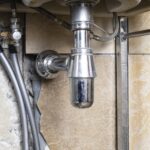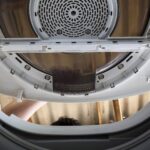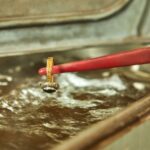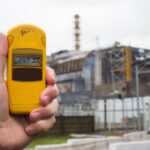Accurate water billing isn’t just about the numbers; it’s a crucial component of sustainable water management and avoiding unnecessary costs. Whether you’re a homeowner or a tenant, understanding how your water meter works and identifying potential issues is key to ensuring fair and efficient usage.
- Common indicators such as unexpected spikes in water bills or visible damage can signal potential water meter malfunctions.
- Learn practical methods to assess your water meter’s accuracy, including simple tests and comparisons with actual usage.
- Understand how to effectively report water meter issues to authorities, ensuring your concerns are backed by solid evidence.
By familiarizing yourself with these insights, you’ll be better equipped to handle any discrepancies with confidence and ensure your water usage is accurately accounted for. Let’s explore how to tackle these issues head-on and maintain your peace of mind.
Recognizing Water Meter Problems: How to Identify and Report Common Issues
Understanding how to recognize water meter problems is essential for ensuring accurate billing and optimizing water usage. Common symptoms of water meter malfunctions can often result in financial discrepancies and inefficient water management.
One primary indicator is unexpected spikes in water bills. If you notice significant changes in your water bill without corresponding changes in your consumption habits, this may suggest an issue with your water meter. Such spikes might indicate that the meter is inaccurately reading your water usage.
Another symptom to watch for is meter reading discrepancies. Regularly compare your meter readings with your billed water usage. If you see discrepancies between the two, it may be worth investigating further to confirm whether your meter is malfunctioning.
Physical signs of wear or damage to the water meter can also be culprits. Inspect the meter for visible wear, rust, or physical damage. These issues could potentially interfere with accurate readings.
By staying vigilant and recognizing these signs early, you can address potential issues before they escalate. If you suspect a problem, it’s crucial to report it to the appropriate authorities for further investigation.
Tools and Techniques to Identify Water Meter Accuracy Problems
Properly identifying water meter accuracy problems can help you take timely action to resolve them. There are several practical techniques and tools available to test your meter’s accuracy effectively.
One effective method is conducting flow rate tests. These tests involve measuring the amount of water passed through your system against the meter’s recorded usage. By comparing the two, you can determine if there are any inaccuracies in your meter readings.
Another strategy is to keep a log of your household’s actual water usage. Use this log to periodically verify if your meter accurately reflects this usage. Consistently record water usage from activities like washing, gardening, or cleaning, and compare it with the readings from your water meter.
Additionally, employing technology such as water usage monitoring apps can provide insights into real-time water consumption. These apps offer precise data that can help spot irregularities in your water utilization patterns.
Equipped with the right tools and techniques, you can ensure your water meter’s accuracy, leading to fair billing and efficient water usage.
Water Meter Problems: How to Identify and Report Accuracy Issues to Authorities
Accurate water meter readings are essential for ensuring that consumers are billed fairly for their water usage. However, when discrepancies arise, knowing how to report these issues to local authorities or utility companies can save you time and money.
If you suspect there is a problem with your water meter, the first step is to gather all necessary documentation. This typically includes a record of your water bills, noting any unusual spikes or variations in usage. Take detailed notes of any physical indicators of fault or damage on the meter itself. Photographs can serve as a valuable addition to your documentation, providing visual evidence to support your claims.
Once you have compiled this documentation, contact your local water authority or the utility company responsible for your water services. Explain the situation clearly and provide your evidence. Reference specific dates and meter readings if possible, as this information will help the authorities assess the issue accurately.
In some cases, authorities may request permission to conduct a meter test. Be prepared for this possibility, as a professional assessment can help determine the exact cause of the problem. Ensure that you keep a record of all communications with the utility company, including dates and contact details of any personnel you speak with.
Reports of water meter accuracy issues are significant for both the consumer and the service provider. They help improve billing accuracy and may uncover broader issues affecting multiple households. By staying proactive and reporting promptly, you contribute to better resource management and waste reduction in your community.
Frequently Asked Questions on Water Meter Accuracy Issues
What causes water meter inaccuracies?
Wear and tear, sediment buildup, or faulty installation can lead to inaccuracies.
How do I know if my water meter is inaccurate?
Look for unexpected spikes in bills, discrepancies in readings, or physical damage.
What tools can I use to check water meter accuracy?
Use flow rate tests or compare readings with actual usage records.
Who should I report water meter problems to?
Contact your local water utility company or relevant authorities.
What information is needed when reporting a faulty water meter?
Provide detailed documentation, including your findings and any evidence of discrepancies.





